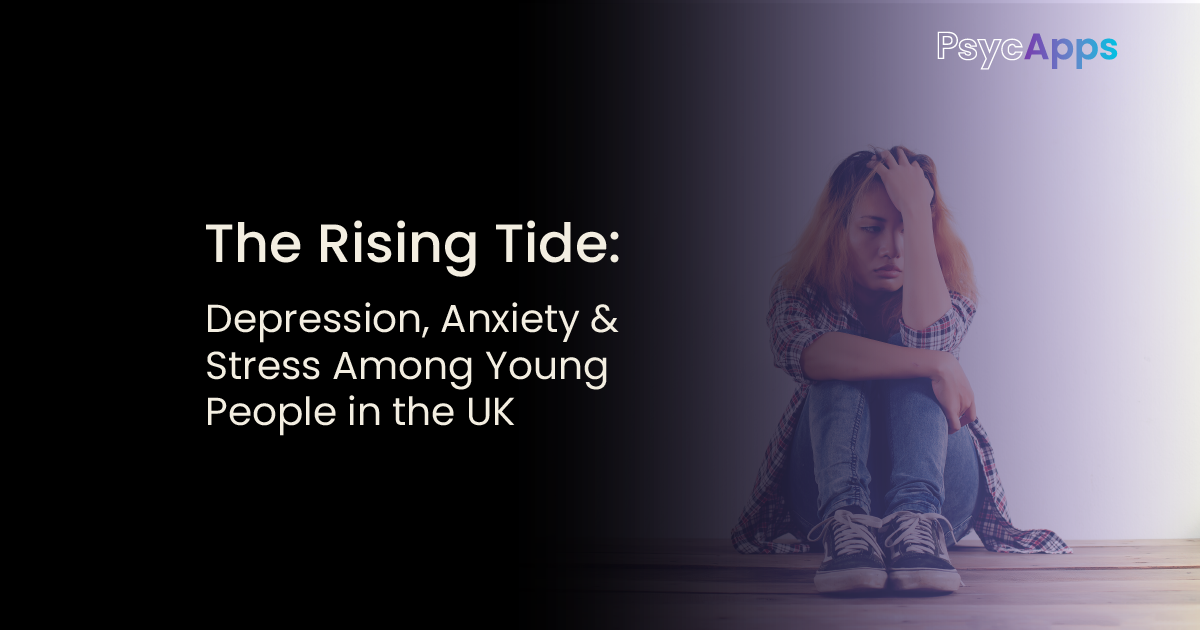In recent years, the mental health landscape for young people in the UK has undergone a significant transformation. Alarmingly, rates of anxiety, depression, and stress have surged, painting a stark picture of the challenges facing today’s youth.
A Decade of Escalating Concerns
The prevalence of mental health issues among young people in the UK has seen a marked increase over the past decade. According to the NHS Digital’s 2021 “Mental Health of Children and Young People in England” survey, approximately 1 in 6 children aged 5-16 were identified as having a probable mental health disorder, up from 1 in 9 in 2017. This trend highlights a worrying rise in mental health challenges among young people.
Current Statistics (2021-2024)
Recent data underscores the continuing escalation of mental health issues:
-
Anxiety: The YoungMinds charity reported that by 2023, anxiety disorders affected around 20% of young people aged 17-19. This is a significant increase from previous years, reflecting the heightened stressors faced by this age group.
-
Depression: Data from the Office for National Statistics (ONS) in 2023 revealed that approximately 15% of young people aged 16-24 reported experiencing moderate to severe depressive symptoms, up from 10% in 2017.
-
Stress: A 2022 survey by the Mental Health Foundation found that 74% of young people aged 18-24 had experienced stress that they felt was overwhelming or unmanageable at some point in the past year.
Understanding the Causes
Several factors have contributed to the rise in mental health issues among young people:
- Academic Pressure: Increased expectations and competition in the educational system have led to significant stress and anxiety among students.
- Social Media: The pervasive use of social media has been linked to feelings of inadequacy, cyberbullying, and a distorted sense of reality.
- Economic Uncertainty: Financial instability and concerns about future job prospects have exacerbated stress and anxiety levels.
- Pandemic Impact: The COVID-19 pandemic has had a profound effect on mental health, with lockdowns, social isolation, and uncertainty contributing to increased rates of anxiety and depression.
The Role of Digital Solutions
In light of these rising challenges, digital mental health solutions like PsycApps’ eQuoo app have become increasingly important. Our clinically-proven emotional wellbeing app equips young people with essential skills to manage their mental health effectively. By leveraging interactive storytelling and psychological techniques, we help users build resilience, improve emotional intelligence, and reduce symptoms of anxiety and depression.
Moving Forward
Addressing the mental health crisis among young people requires a multifaceted approach. Schools, parents, healthcare providers, and policymakers must collaborate to create supportive environments and provide accessible resources. Early intervention and education on mental health can make a significant difference in preventing and managing these conditions.
At PsycApps, we are committed to being part of the solution. Through innovative technology and a deep understanding of psychological principles, we strive to make a positive impact on the mental health of young people. By raising awareness and promoting effective tools, we hope to turn the tide on this rising crisis and foster a healthier, more resilient generation.
Closing remarks
The increase in anxiety, depression, and stress among young people in the UK is a pressing concern that demands immediate attention. As we continue to navigate these challenges, it is essential to support our youth with the tools and resources they need to thrive. Together, we can build a brighter future where mental health is prioritised and every young person has the opportunity to lead a fulfilling life.
Want to implement eQuoo in your school, college or university? Contact us today for September implementation!


